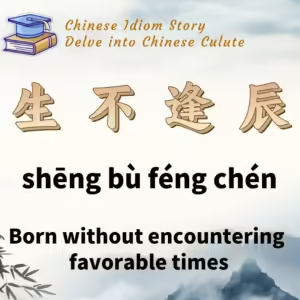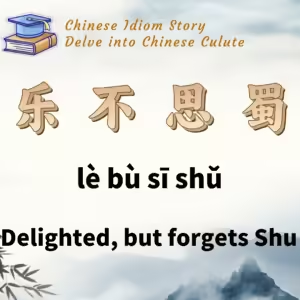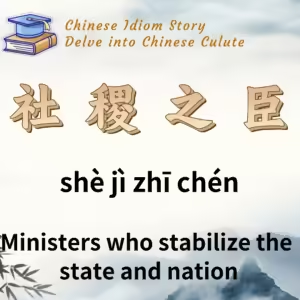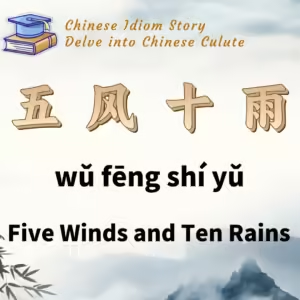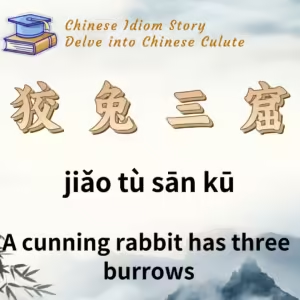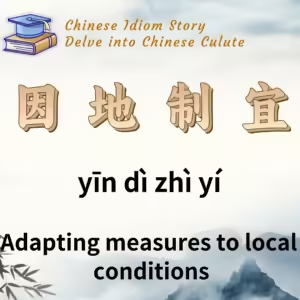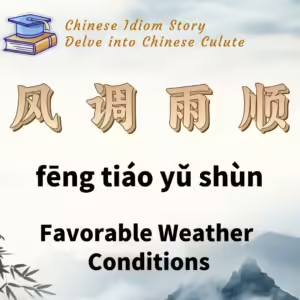
Chinese Idiom: 风调雨顺 (Feng Tiao Yu Shun)
English Translation: Favorable Weather Conditions
pīn yīn: fēng tiáo yǔ shùn
Idiom Meaning: This idiom is used to express a wish for ideal weather conditions that support successful harvests and ensure the well-being of the people. It emphasizes the importance of favorable weather for agricultural prosperity and the avoidance of natural disasters.
Historical Source: Su Shi’s Litchi Lament (《荔枝叹》) from the Song Dynasty.
Idiom Story
The idiom “风调雨顺” originates from Su Shi’s poem Litchi Lament (《荔枝叹》), written in 1095 during his time in Huizhou. In this poem, Su Shi reflects on the arrival of litchis, a luxurious fruit that had been historically problematic due to its high demand and the resulting hardships faced by those involved in its transport.
The poem is divided into two parts. The first part laments the historical suffering caused by the transportation of litchis, detailing how the fruit was sent from distant regions and the severe consequences for those involved:
“十里一置飞尘灰,五里一埃兵火催。颠坑仆谷相枕藉,知是荔枝龙眼来。飞车跨山鹘横海,风枝露叶如新采。宫中美人一破颜,惊尘溅血流千载。永元荔枝来交州,天宝岁贡取之涪。至今欲食林甫肉,无人举觞酹伯游。”
Translation:
“For ten miles, there is dust and ash, and for five miles, fires caused by soldiers. Dead bodies pile up in the pits and valleys, indicating that litchis and longans have arrived. The fast car crosses mountains and eagles soar over the sea. The fresh litchis with their branches and leaves are like new harvest. In the palace, a beauty’s face has been marred, causing dust and blood to flow through the ages. The litchis of the Yongyuan era came from Jiaozhou, and those of the Tianbao era were taken from the Fuxian region. Even today, those who want to taste Lin Fu’s meat have no one to offer a toast to Bo You.”
The second part of the poem shifts to a hopeful and earnest wish for a more auspicious future:
“我愿天公怜赤子,莫生尤物为疮瘠。风调雨顺百谷登,民不饥寒为上瑞。”
Translation:
“I wish that Heaven would show mercy to the common people and not bring forth such beauties as sources of disaster. Favorable winds and smooth rains for a bountiful harvest, where the people do not suffer from hunger and cold, would be the highest blessing.”
In this passage, Su Shi expresses a desire for a more stable and favorable environment, one where ideal weather ensures plentiful crops and the well-being of the people, rather than the negative impact of luxury goods. This wish for harmony in nature and prosperity for the people gave rise to the idiom “风调雨顺.”

